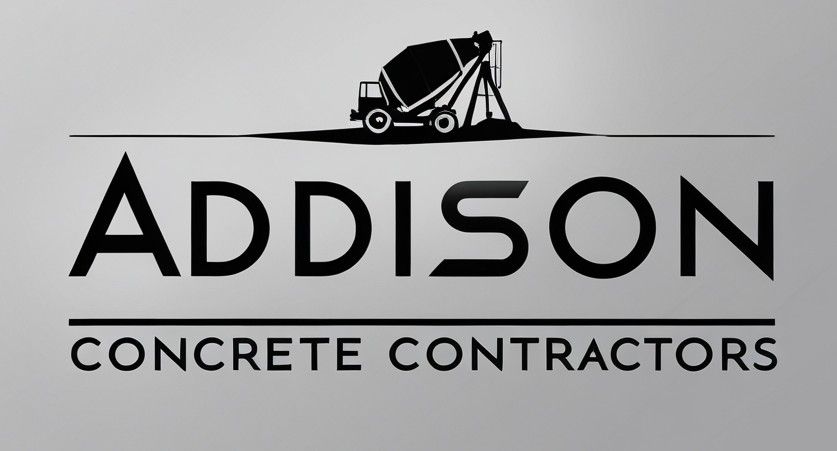How Thick Should a Concrete Driveway Be in Addison Texas?
In North Texas, homeowners in communities like Addison and Dallas should typically pour between 4 to 6 inches for standard passenger vehicles to guarantee it can adequately support their weight.
For driveways that might occasionally bear heavier vehicles, such as garbage trucks or RVs, we recommend increasing the thickness to 6 to 8 inches.
Adhering to local Addison building codes, which often set a minimum of 3.5 to 4 inches, is vital, but opting for thicker slabs enhances durability. It's important to use concrete with a compressive strength of at least 3,500 PSI.
Additionally, proper subgrade preparation and reinforcement with rebar or wire mesh greatly improve the driveway thickness's load-bearing capacity and longevity, ensuring it withstands the demands of daily use.
Key Factors That Affect Driveway Thickness
When determining the appropriate thickness for a concrete driveway, several key factors must be taken into account. Understanding these factors helps guarantee a durable driveway slab that meets our needs:
- Traffic Volume: The expected weight and volume of traffic influence thickness; typically 4–6 inches for passenger vehicles and 6–8 inches for heavier vehicles.
- Soil Conditions: The quality of the underlying soil plays a vital role; stable soils can support thinner slabs, while poor soils like clay may require additional thickness and a gravel base.
Local Codes: Municipal regulations often dictate a minimum thickness of 4 inches, varying by locality, so always check local building codes.
Recommended Concrete Strength and Reinforcement
Concrete strength and reinforcement are essential components for ensuring the longevity and durability of driveways.
In Texas, we recommend a concrete strength of 3,000 to 4,000 PSI for residential driveways, increasing to at least 4,500 PSI in colder climates. For heavier commercial driveways, a strength of 5,000 PSI or more is vital.
The minimum thickness of a concrete slab should be 4 inches for standard vehicles, increasing to 6–8 inches for heavier loads.
We advocate for reinforcement with #3 steel bars on 18-inch centers for residential driveways, while #4 bars are ideal for commercial applications. For slabs 5 inches thick or more, a grid pattern with rebar placed 12 inches apart enhances structural integrity and minimizes cracking.
For outdoor spaces like patios, our
Concrete Patio Services also use reinforcement and thickness guidelines designed for long-term durability.
Preventing Cracks and Damage Through Proper Thickness
To effectively prevent cracks and damage in driveways, it’s important to prioritize the appropriate thickness of the concrete slab. Achieving the correct slab thickness not only guarantees durability but also enhances load-bearing capacity.
Here are key considerations:
- Minimum Thickness: A slab thickness of at least 4 inches is essential for supporting standard passenger vehicles and preventing cracks.
- Increased Capacity: Opting for 6 inches can nearly double the load-carrying capacity, suitable for larger vehicles.
- Soil Conditions: In areas with poor soil, combining a thicker slab with a gravel base greatly reduces the risk of cracking.
If you’re planning a new driveway, our
Concrete Driveway Installation Services in Addison can help ensure proper thickness and reinforcement from day one.
Local Guidelines for Driveways in Addison & Dallas, TX
How do the local guidelines in Addison and Dallas shape our approach to driveway construction?
In these areas, residential driveways must have a minimum thickness of 4 inches, while 6 to 8 inches is advised for heavier vehicles like RVs.
For commercial driveways, guidelines often specify a thickness of at least 6 to 8 inches to handle frequent heavy traffic.
Additionally, the recommended compressive strength for the concrete should be 3,500 PSI, increasing to 4,500 PSI for colder climates or substantial loads.
We should also guarantee that driveway edges are thicker than the center, by 1 to 2 inches, for added support.
Adhering to these local regulations guarantees our driveways remain durable and functional.
Frequently Asked Questions
Should I Use a 4-Inch or 6-Inch Concrete Driveway?
We recommend using a 6-inch concrete driveway if you plan to accommodate heavier vehicles or expect high traffic. This thickness enhances load-bearing capacity and minimizes the risk of cracking, especially in areas with poor soil conditions. If your driveway will only support standard passenger vehicles, a 4-inch slab might suffice. However, considering local building codes and consulting a professional can help you make the best choice.
How Much Is a 20x20 Concrete Driveway?
In the Addison and Dallas area, a standard 20x20 concrete driveway usually costs between $4,500 and $8,000, depending on site prep, materials, and reinforcement. Premium finishes like stamped or stained concrete may increase the price. For an exact quote, contact Addison Concrete Contractors.
Do You Need a Permit to Pour a Concrete Driveway in Texas?
Yes, a permit is often required to pour a concrete driveway in Texas. It's essential to check local regulations since permit requirements can vary by city. Typically, you’ll need to submit plans detailing the driveway's dimensions and materials. Budgeting for permit fees is also necessary. Skipping this step can lead to fines or complications, so always confirm requirements with your local municipality.
Does a 4-Inch Concrete Driveway Need Rebar?
A 4-inch concrete driveway typically doesn't need rebar if it's supporting light passenger vehicles and has a well-prepared subgrade. However, if you anticipate heavier loads or poor soil conditions, adding rebar can greatly enhance structural integrity and prevent cracking. For best results, wire mesh reinforcement is recommended in 4-inch driveways.
